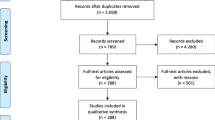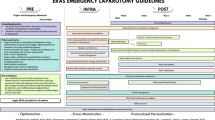Abstract
Conservative practices, such as manual registry have limited scope regarding preoperative, intraoperative and postoperative decision making, knowledge discovery, analytical techniques and knowledge integration into patient care. To maximize quality and value, perioperative care is changing through new technological developments. In this context, knowledge management practices will enable future transformation and enhancements in healthcare services. By performing a data science and knowledge management research in the perioperative department at Hospital Dr. Nélio Mendonça between 2013 and 2015, this paper describes its principal results. This study showed perioperative decision-making improvement by integrating data science tools on the perioperative electronic system (PES). Before the PES implementation only 1,2% of the nurses registered the preoperative visit and after 87,6% registered it. Regarding the patient features it was possible to assess anxiety and pain levels. A future conceptual model for perioperative decision support systems grounded on data science should be considered as a knowledge management tool.


Similar content being viewed by others
References
Menachemi, N., and Collum, T. H., Benefits and drawbacks of electronic health record systems. Risk Manag. Healthcare Policy 4:47–55, 2011.
World Health Organization (WHO)., Management of patient information: trends and challenges in Member States: based on the findings of the second global survey on eHealth. Global Observatory for eHealth series -Volume 6, 2012.
Vedula, S. S. et al., Innov Surg Sci. 2017 Apr;2(3):109–121, 2017. doi: https://doi.org/10.1515/iss-2017-0004.
St. Jacques, J., Minear, N., (2008). Improving perioperative patient safety through the use of information technology. In: Henriksen K, Battles JB, Keyes MA, et al., editors. Advances in Patient Safety: New Directions and Alternative Approaches (Vol. 4: Technology and Medication Safety). Rockville (MD): Agency for Healthcare Research and Quality (US).
Khalifa, M., and Alswailem, O., Hospital information systems (HIS) acceptance and satisfaction: A case study of a tertiary care hospital. Proc. Comput. Sci. 63(2015):198–204, 2015.
Doebbeling, B. N., Burton, M. M., Wiebke, E. A., Miller, S., Baxter, L., Miller, D., and Pekny, J., Optimizing perioperative decision making: improved information for clinical workflow planning. AMIA Annual Symposium Proceedings, 154–163, 2012.
Sweeney, P., The effects of information technology on perioperative. Nursing. 92(5), 2010.
Bhavnani, S., Muñoz, D. and Bagai, A., Data science in healthcare: implications for early career investigators. Circ.: Cardiovasc. Qual. Outcomes, 2016. 9. CIRCOUTCOMES.116.003081. https://doi.org/10.1161/CIRCOUTCOMES.116.003081.
Kakabadse, K. A., From tacit knowledge to knowledge management: leveraging invisible assets, 2001.
Plessis, M. D., Drivers of knowledge management in the corporate environment. Int. J. Inform. Manag. 25:193–202, 2005.
Gupta, B., Iyer L. & Aronson J. (2000). Knowledge management: Practices and challenges,” Indust. Manag. Data Syst., Vol. 100, N°. 1, 17–21.
Morr, C., and Subercaze, J., Knowledge management in healthcare. IGI Global Chapt. 23:490–510, 2010.
Rocha, A., & Rocha, B. (2014). Adopting nursing health record standards. Inform. Health Social Care, Vol. 39, N°. 1, 1–14.
Carvalho, J. V., Rocha, Á., van de Wetering, R., & Abreu, A. (2019). A maturity model for hospital information systems. J. Bus. Res., Vol. 94, N° 1, 1–12.
Author information
Authors and Affiliations
Corresponding author
Ethics declarations
Ethical Approval
All procedures performed in studies involving human participants were in accordance with the ethical standards of the institutional and/or national research committee and with the 1964 Helsinki declaration and its later amendments or comparable ethical standards.
Informed Consent
Informed consent was obtained from all individual participants included in the study.
Additional information
Publisher’s Note
Springer Nature remains neutral with regard to jurisdictional claims in published maps and institutional affiliations.
This article is part of the Topical Collection on Systems-Level Quality Improvement
Rights and permissions
About this article
Cite this article
Baptista, M., Vasconcelos, J.B., Rocha, Á. et al. The Impact of Perioperative Data Science in Hospital Knowledge Management. J Med Syst 43, 41 (2019). https://doi.org/10.1007/s10916-019-1162-3
Received:
Accepted:
Published:
DOI: https://doi.org/10.1007/s10916-019-1162-3




